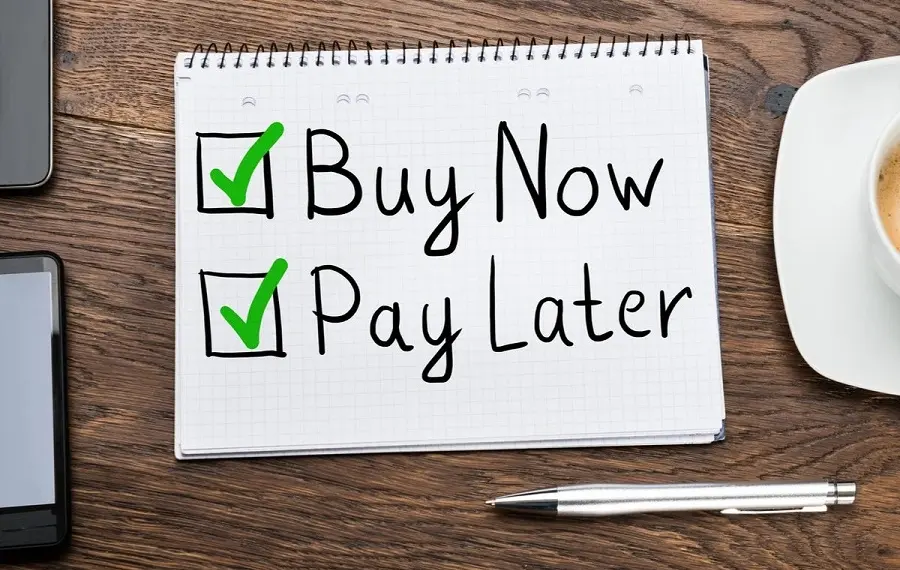There are reports that the US Consumer Financial Protection Bureau (CFPB) plan to regulate “buy now, pay later” companies. The reports claim that due to the rapid growth of financial products companies such as Klarna and Affirm Holdings, CFPB believes that they may harm consumers. Thus, plans are on the way to regulate these companies. The CFPB does not currently oversee buy now pay later companies or their products. However, the agency claim they will have guidelines or regulations consistent with those of credit card companies. The CFPB also states that they will implement appropriate oversight and inspection mechanisms.

The move will be a blow to the entire industry. In fact, such businesses have already come under pressure from higher financing costs and lower U.S. consumer spending. The lower consumer spending is obviously due to inflation. It also marks a major offensive by CFPB director Rohit Chopra. He has previously pledged to scrutinize tech-driven companies as they increasingly encroach on the traditional financial industry.
“Banking and commerce in the U.S. are often segregated. But as payments services start to take the approach of big tech, that segregation could be broken,” he said.
“Buy now, pay later” companies are on fire
With the “buy now, pay later” service, consumers can pay in instalments for consumption. The popularity of such services has surged as U.S. consumers have made heavy use of e-commerce during the pandemic. Merchants pay the provider a fee each time a consumer completes a transaction through the “buy now, pay later” service.
A CFPB investigation last year found that “buy now, pay later” providers Affirm Holdings, Block’s Afterpay, Klarna, PayPal and Australia’s Zip made 180 million consumer loans in 2021 totalling $24.2 billion. But the CFPB claims in the report that they are concerned that these products may pose risks to consumers. The bureau highlights the lack of standardized information disclosure mechanisms among the five companies. It also highlights the potential of these companies to lure consumers into overspending.

Because “buy now, pay later” providers don’t provide data to credit reporting agencies, lenders may not have a full picture of borrowers’ debts. This includes consumers’ loans with other “buy now, pay later” companies, the CFPB said. The way buy-now-pay-later agencies collect consumer data also poses risks, the CFPB said. They will gradually identify data surveillance practices such businesses should avoid.
In a statement, an Affirm spokesperson said the company’s priority is “to provide consumers with a safe, honest, and responsible way to pay in instalments without late or hidden fees”. “Today represents a huge step forward for consumers and integrity finance, and we are encouraged by the findings of the CFPB’s assessment,” the spokesperson said, noting that the CFPB’s report acknowledges that compared to traditional credit products, “buy now, pay later” greatly reduces costs for consumers.
Relevant companies claim its safe
A Klarma spokesman said the company “will be committed to maintaining financial stability and protecting consumers through industry innovation and appropriate regulation”. A Zaip spokesperson said… “We are delighted that the CFPB has recognized the value of ‘buy now, pay later’ for consumers. This includes providing them with easy-to-use, low-cost lines of credit, especially in this challenging economic environment.”

The Financial Technology Association is an industry group representing the interests of a number of “buy now, pay later” companies. The group’s chief executive, Penny Lee, said in a statement that the report identified “buy now, pay later” as a competitor to high-interest credit products.
“We look forward to continuing to work with regulators such as the CFPB to achieve outcomes that are beneficial to consumers,” she said. The CFPB was created after the 2008 financial crisis. Its main mission is to crack down on predatory lenders such as mortgage companies and payday lenders. While the agency has not previously overseen “buy now, pay later” companies, Chopra said in July that he has the power to oversee those companies as they become more similar to traditional financial services firms.
However, the “buy now, pay later” companies may disagree. Shares of “buy now, pay later” companies have been under selling pressure this year. Shares of Affirm have fallen more than 75% this year, and Zip has also hit 79%. Klarna’s valuation plummeted 85% in July.
Apple joins the buy now, pay later service
American “buy now, pay later” giant, Affirm CEO Max Levchin said he is not worried about Apple’s upcoming buy now pay later service. This is because Affirm’s services are more extensive in the longer term.

“I don’t think there’s anything to worry about, there’s a lot of room for growth on all sides,” Levchin said, saying buy now, pay later transactions account for less than 5 per cent of U.S. transactions.
Affirm offers loans to customers for periods ranging from 6 weeks to 60 months, and Apple allows customers to make four payments over a 6-week period. Levchin believes that Apple services can provide a boost to the buy now pay later market.
On Monday, local time, Apple officially launched the Apple Pay Later service at WWDC. Unlike other similar platforms, Apple Pay Later is directly integrated into the iPhone Wallet App, which is pre-installed on the new iPhone. Sweden’s “buy now, pay later” service provider Klarna, a competitor to Affirm, recently announced 10% layoffs due to difficult circumstances. Levchin, who said they are still hiring, thinks Apple’s new service will challenge rivals that focus on short-term lending. Apple’s current buy now, pay later service does target short-term lending. However, the company is also developing Apple Pay Monthly Installments, which will compete directly with Affirm.





